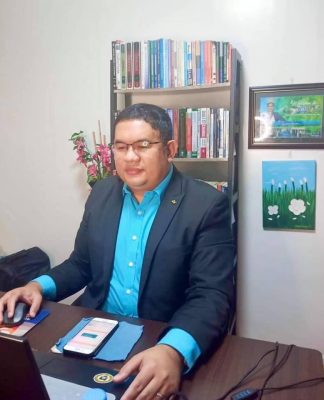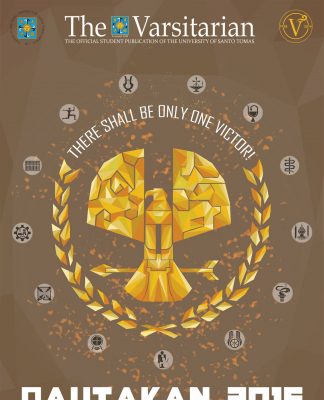 WHILE taking the steps to the LRT station in Tayuman nights ago, I suddenly turned my attention to those beggars waiting on both sides of the staircase for people who would drop coins. And then I thought of Manny Villar, the Nacionalista Party presidential candidate, who became famous for his tagline: “Tapusin ang kahirapan.” And then I imagined the beggars out of the stairs, and living in their own homes at one of Villar’s subdivisions.
WHILE taking the steps to the LRT station in Tayuman nights ago, I suddenly turned my attention to those beggars waiting on both sides of the staircase for people who would drop coins. And then I thought of Manny Villar, the Nacionalista Party presidential candidate, who became famous for his tagline: “Tapusin ang kahirapan.” And then I imagined the beggars out of the stairs, and living in their own homes at one of Villar’s subdivisions.
It is funny how a politician can promise such a tumultuous task. Villar, who had flaunted, or boasted his rags to riches story, had been dropping on surveys recently against his closest rival Benigno “Noynoy” Aquino. This is because of the controversies, like the C-5 road diversion, hurled against him by opponents from the “politics world.”
There is another case, this time, not election-related, but rather personal. Days ago, a surprise visit from two students of De La Salle University-Dasmarinas caught me off guard. They were asking if I could be interviewed on the spot after a miscommunication between them and Emil, our editor in chief. Emil is in China, probably parading the Great Wall, as of this writing.
And so, I was interviewed. The two were basically asking about the Varsitarian history and my experience as the second top boss of the country’s premier Catholic campus paper. I breezed through the questions, but one of them almost made me speechless: “What do you consider the biggest challenge or problem you have encountered in your stay at the publication?”.
There were just too many things that I could answer, but I chose what I consider the most unique they would hear from a professional interview: internal problems with the staff.
Of course, anybody who belongs to an organization can understand why: a chaotic organization will not function properly. It will not serve its purpose to the society because it is disgruntled by issues within its portal— that is no matter how professionalism is considered.
What’s the point of all of these? For one, trust issues. I always wondered how survey firms rate trust of the people to their leaders with only a question. But defending the process of the Social Weather Stations and Pulse Asia will be much easier because it’s scientific, and the people they rate are public figures. But what about their private lives? How can one qualify that within the scope of the survey, and how much weight will firms give it if ever?
People often talk about transparency. But if you will ask me, there is really no such thing. People are naturally secretive because they value privacy for their own security. Criticisms may be hurled against certain personalities for what they portray in front of the camera, campaign rallies, and in my case, through this column. It serves as a mirror to politicians, public servants, social workers, but it does not reflect what we really are. I am not a pro-Villar, but I can fairly say that every politician deserves a time out from the limelight to become a “person.”
We journalists are often regarded as workers at the back side of the story. You see our bylines in our articles, but it is not us who become famous and remembered, but our write-ups. So for those who were hurt, offended, irritated, and amused (if there are any) by the words written in this smooth tablet for the past year, think about one thing: critical thinking requires knowing that there is something behind that smile you see in my column picture.



















